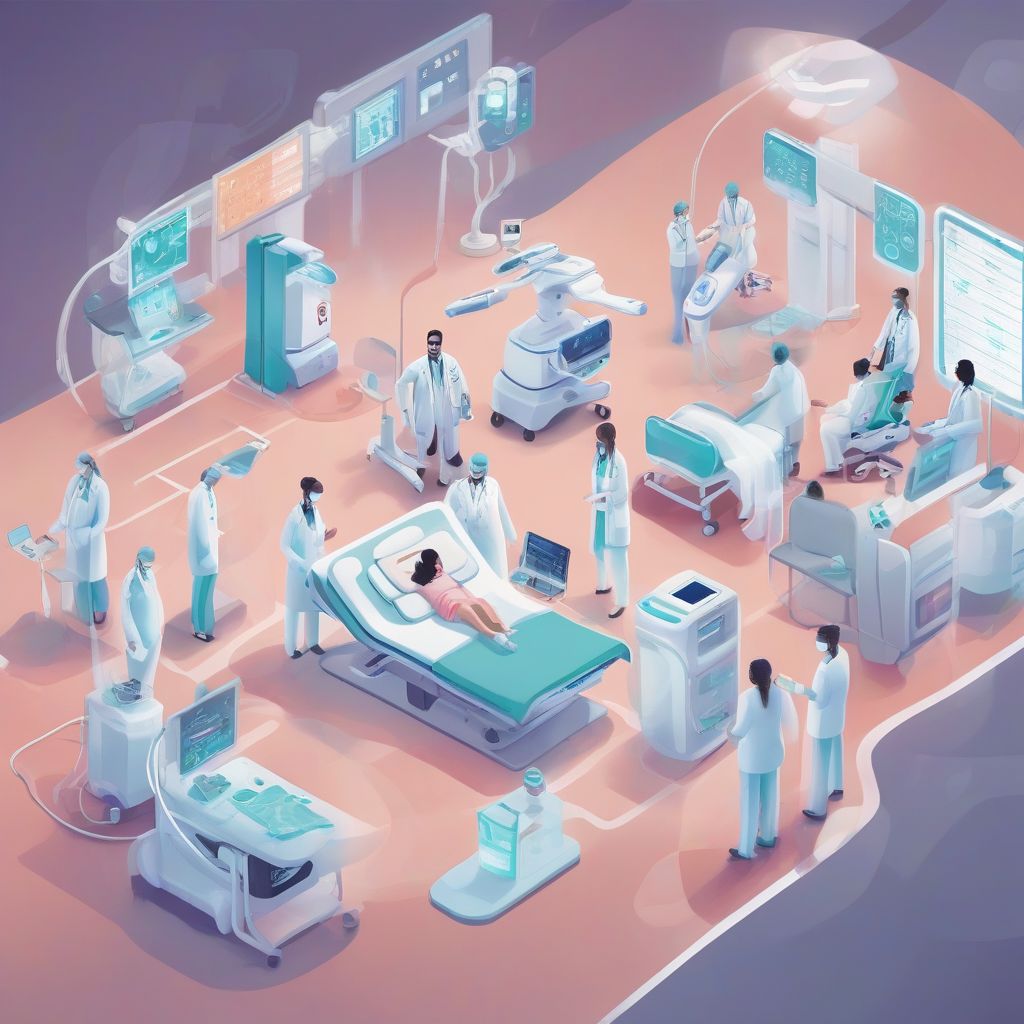Imagine a world where diagnoses are faster, treatments are more precise, and patient care is highly personalized. That’s the promise of artificial intelligence (AI) in healthcare and medicine. As a nutritionist and meal prep coach, I’m fascinated by how this cutting-edge technology is transforming the way we approach health and wellness.
What is AI in Healthcare and Medicine?
In simple terms, AI in healthcare leverages computer systems to analyze medical data and assist healthcare professionals in making better decisions. It’s like having a tireless assistant that can sift through mountains of information in seconds, identifying patterns and insights that might be missed by the human eye.
How AI is Transforming Healthcare
The applications of AI in healthcare are vast and varied. Let’s explore some key areas where this technology is making a significant impact:
1. Diagnosing Diseases with Unprecedented Accuracy
AI is revolutionizing disease diagnosis, often surpassing human capabilities in terms of speed and accuracy. For example, AI-powered algorithms can analyze medical images like X-rays, CT scans, and MRIs to detect subtle anomalies that may indicate cancer or other diseases, even at very early stages.
2. Personalizing Treatment Plans
Gone are the days of one-size-fits-all treatment approaches. AI is paving the way for personalized medicine, where treatments are tailored to each patient’s unique genetic makeup, lifestyle, and environmental factors. This means more effective treatments with fewer side effects.
3. Accelerating Drug Discovery
Developing new drugs is a costly and time-consuming process. AI is speeding up this process by analyzing vast databases of molecular structures and clinical trial data to identify promising drug candidates. This has the potential to bring life-saving treatments to patients faster.
4. Enhancing Patient Care
From virtual assistants that answer patient queries to AI-powered robots that assist in surgery, AI is enhancing patient care in remarkable ways. These technologies free up healthcare professionals to focus on more complex tasks, leading to better patient outcomes.
5. Improving Public Health Surveillance
AI is proving to be a valuable tool in tracking and predicting disease outbreaks. By analyzing data from various sources, such as social media and medical records, AI algorithms can identify emerging health threats and enable public health officials to take timely action.
Real-World Examples of AI in Healthcare
The impact of AI in healthcare is already being felt through real-world applications:
- IBM Watson Oncology: This AI system assists oncologists in making more informed treatment decisions for cancer patients by providing evidence-based treatment options tailored to each patient’s specific needs.
- Google’s DeepMind: This AI platform has developed algorithms that can diagnose eye diseases with accuracy comparable to expert ophthalmologists, potentially preventing vision loss for millions.
- PathAI: This company leverages AI to improve the accuracy of cancer diagnosis and treatment selection by analyzing tissue biopsies with greater precision.
 AI in Healthcare Illustration
AI in Healthcare Illustration
The Future of AI in Healthcare
The future of AI in healthcare is incredibly promising. As AI technology continues to advance, we can expect to see even more innovative applications emerge, further transforming patient care and revolutionizing the healthcare industry.
Embracing the AI Revolution in Healthcare
As a nutritionist, I’m excited to see how AI can help individuals make healthier choices. Imagine AI-powered apps that personalize nutrition plans based on your DNA or wearable devices that provide real-time feedback on your dietary intake.
While AI in healthcare is still in its early stages, it holds immense potential to improve our lives. By embracing this transformative technology, we can look forward to a future where healthcare is more personalized, efficient, and effective than ever before.
[amazon bestseller=”AI in Healthcare”]
Conclusion
The integration of AI in healthcare is no longer a futuristic concept but a rapidly evolving reality. From diagnosing diseases with remarkable accuracy to accelerating drug discovery and personalizing treatment plans, AI is transforming the way we approach health and wellness. As this technology continues to advance, we can expect to see even more innovative applications emerge, paving the way for a future where healthcare is more proactive, precise, and ultimately, more human-centered. It’s an exciting time to be in the healthcare space, and I’m eager to witness firsthand how AI will continue to shape the future of patient care.
What are your thoughts on the role of AI in healthcare? Share your insights in the comments below! Don’t forget to explore our other articles on the latest advancements in technology and their impact on various industries. You can find some interesting reads on the impact of 5G on autonomous systems and emerging technologies in robotics software on our website.
